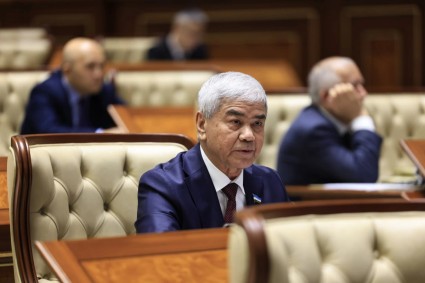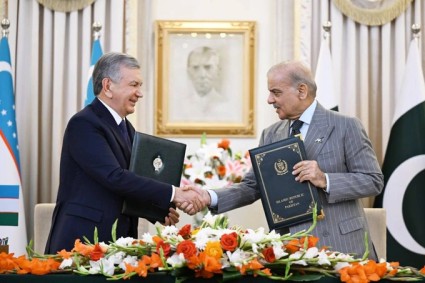On 23 October 2018, a seminar entitled “Improved Drought Early Warning System: Opportunities and Prospects for Practical Application” initiated within the framework of a joint project of UNDP / AF and Uzhydromet was held in the Poytakht Business Center. Providing climate stability of farms and dekhkan farms located in arid regions of Uzbekistan.
Over the past two decades, Uzbekistan has experienced several extreme droughts, which resulted in the death of 50% to 75% of the crop. During the severe drought of 2000-2001, cereal production fell to 14%, other crops - to 45-75%. The damage caused is estimated at about US$130 million. Climate change scenarios predict that the frequency of droughts in Uzbekistan and their intensity will only increase.
In 2017, within the framework of the project activities, the entire meteorological network of Karakalpakstan, previously operated in the manual data collection mode, was automated. As noted by the organizers of the workshop, this allowed for improving the system of early warnings and ensuring preparedness for the consequences of extreme hydrometeorological events.
The drought early warning system makes it possible to determine the projected amount of water resources available this year in the upper reaches of the mountain rivers of Uzbekistan, located in the zone of formation of natural runoff, as well as in the lower reaches of the Amudarya River - a zone of intensive water use for various needs, primarily irrigation of agricultural land. Forecasting of the water content of the lower reaches of the Amudarya River is carried out for various periods - in January, February and March.
“The role of the SRPP system consists primarily in early warning of the possibility of low water and drought in the region not only of key ministries and departments of Karakalpakstan, but also in bringing long-term water availability forecasts to end users - rural households and farmers.
For this, it is necessary to expand the access of representatives of local communities to long-term water flow forecasts for the lower reaches of the Amudarya River through the media, advisory and information centers established in Karakalpakstan, and the Uzhydromet Drought Monitoring Center, ”said Alexander Pak, Research Fellow of Hydrometeorological Research Institute (NIGMI) at Uzhydromet.
Potential consumers of the lower reaches of the Amudarya river through this system can be decision makers (local administrations, relevant ministries and agencies related to the water sector), local communities (farmers and dekhkan farms, water users associations and rural households) Karakalpakstan.
Among the participants of the seminar are representatives of relevant ministries, departments, NGOs, foundations, research institutes, educational institutions, as well as the Ecological Movement of Uzbekistan, the Syrdarya Basin Water Management Organization, the Council of Farmers, Dekhkan Farms and Owners of Household Lands, and others.
The United Nations Development Program (UNDP) in Uzbekistan assists in ensuring the climate resilience of farms in Karakalpakstan, the region most exposed to drought risks. The project is implemented in partnership with the Center for Hydrometeorological Services under the Ministry of Emergency Situations of the Republic of Uzbekistan and is funded by the Adaptation Fund of the UN Framework Convention on Climate Change.













